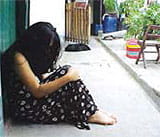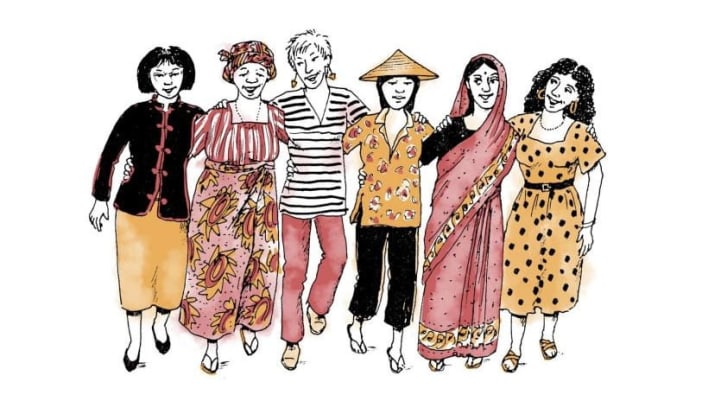by Chester Thomas

Reducing the risk of domestic violence
PAG’s ‘Deborah programme’ provides care, counselling and legal protection to women who have been victims of violent abuse
2008

Photo: Proyecto Aldea Global
Domestic violence cases in Honduras are only now being investigated, despite laws passed in 1998. This is as a result of women standing up for their rights and demanding justice for those who have been abused. Local governments are also beginning to invest in providing services for women who have been abused. Proyecto Aldea Global (PAG – Project Global Village) is helping to improve the situation.
The current situation
In towns there are a few legal and counselling services available to victims of domestic violence, but in rural areas such assistance is limited. Women in rural areas who are abused have three options:
- Pay a lawyer to seek justice. This is rarely done as lawyers are very expensive.
- Make a costly journey to town to get help from one of the busy government offices.
- Seek help from a local non-profit organisation. Most of these organisations, however, do not offer this kind of help in domestic violence responses. Also, staff often think that abuse and harassment are the fault of the victim.
PAG’s response
Domestic violence continues to increase. Between 2003 and 2008 more than 84,000 cases were registered but only 20 per cent were investigated and resolved. Due to limited financial resources and personnel, PAG is only able to review approxi mately 800 cases a year. This has encouraged PAG to work alongside local churches and organisations to help them to reduce domestic violence.
PAG and its networks of female volunteers, are responding to four main problems:
- A lack of capacity in local civil society organisations, such as churches, universities and municipal commissioners, to respond to victims of domestic violence even when they are willing to help.
- Poor co-ordination of actions taken in favour of women’s rights with the authorities, such as the local police and courts. This causes them to be inefficient or ineffective.
- Women having little or no local political representation for their rights. They are not welcome to participate in local community action groups.
- Women being economically dependent on their husbands or partners. This makes it harder to negotiate equal rights in the home and in the community.
The ‘Deborah programme’
PAG’s ‘Deborah programme’ seeks to improve the capacity of local civil society organisations to prevent abuse and to provide Christian care, counselling and legal protection to women who have been victims of violent abuse. The programme is managed by trained community personnel who work out of local government offices in six regions.
The future
Many local civil society organisations are keen to reduce domestic violence and gain equal rights for women. These groups want to be trained so that they can defend the rights of women. The ‘Deborah programme’ hopes to expand by training more local volunteer organisations so that they can counsel victims of domestic violence and provide legal assistance, especially where women’s rights have been affected. PAG also wants to improve co-ordination between authorities and civil society organisations to create more awareness locally and reduce domestic violence cases.
Women need to participate in local community organisations, such as action groups, police and schools, to improve respect for women and their legal rights. They also need to know their rights and use them to stop the vicious cycle of dependency in domestic violence cases. One way to do this is to teach school children about domestic violence as part of their education. This should start as early as possible, and should include education about their rights and the rights of their mothers.
Conclusion
Domestic violence is a problem that requires concen trated efforts by the church, civil society, local and national govern ment so that women in every country can have their rights respected and guaranteed.
Chester Thomas is the Director of Proyecto Aldea Global, Apartado 1149, Tegucigalpa DC, Honduras.
Email: [email protected]
Web: http://www.paghonduras.org/
Similarly Tagged Content
Share this resource
If you found this resource useful, please share it with others so they can benefit too.

Subscribe to Footsteps magazine
A free digital and print magazine for community development workers. Covering a diverse range of topics, it is published three times a year.
Sign up now - Subscribe to Footsteps magazine






